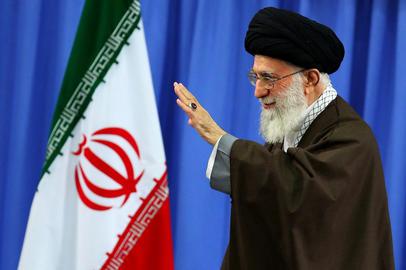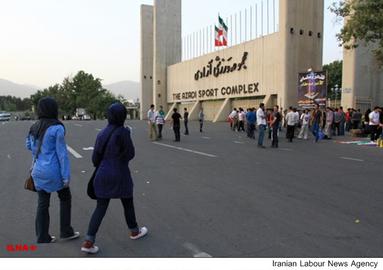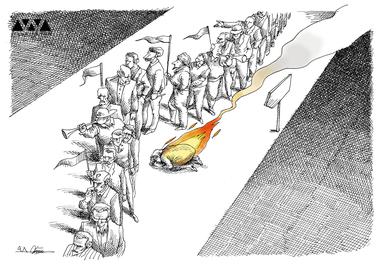Sahar Khodayari, the woman who set herself on fire outside a Tehran courthouse in protest against the ban on women entering stadiums and the punishment she received, died on September 6. It took three days for Iran to officially announce her death.
On September 10, hours after her death was officially announced — and after her family had been warned not to go public with the news — journalists and editors began receiving text messages. The full message read:
Confidential/Only FYI/Not for Publication
Greetings. Condolences on the arrival of Hussein’s Ashura [the lunar Islamic month when the Shias mourn the martyrdom the third Imam], and wishing that the mourning by our esteemed colleagues would be accepted [by God].
1. The self-immolation and the death of the late Sahar Khodayari is a sad and painful event.
2. By focusing on this event, certain foreign media and security agencies have started a vast effort to turn the manner of her death into a social campaign of protest.
It is necessary that our esteemed colleagues, especially the media published on Wednesday (tomorrow), treat this event with more tact and vigilance and seriously avoid dramatizing it or using terms such as “Blue Girl”, etc.”
This followed threats to journalists and people trying to support the family prior to her death. When they showed up at the hospital, they were turned away by security guards, who said that Khodayari's hospitalization was a "national security" matter. Following her death, agents urged her family not to speak about what had happened. "She's caused enough trouble for our country," they said.
These tactics to ensure the families of political prisoners — including dual nationals held on spurious charges like espionage — keep information about their detained loved ones out of the public domain have become commonplace. In most cases, staying silent has not brought about the release of these prisoners, though some families feel it is the safest option.
visit the accountability section
In this section of Iran Wire, you can contact the officials and launch your campaign for various problems


























comments